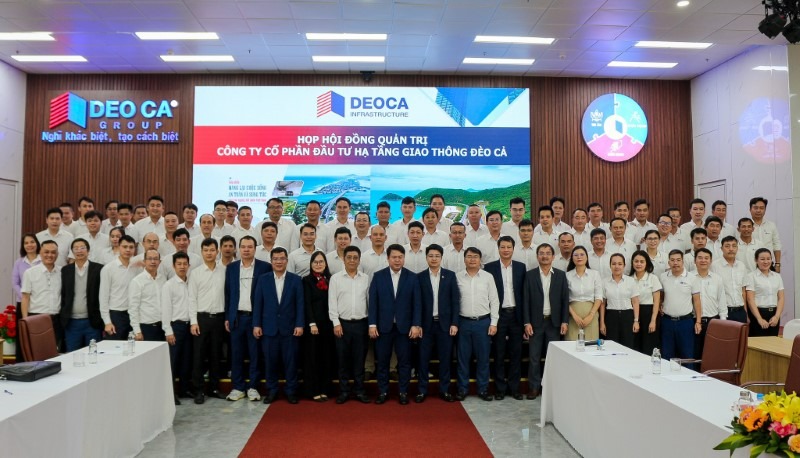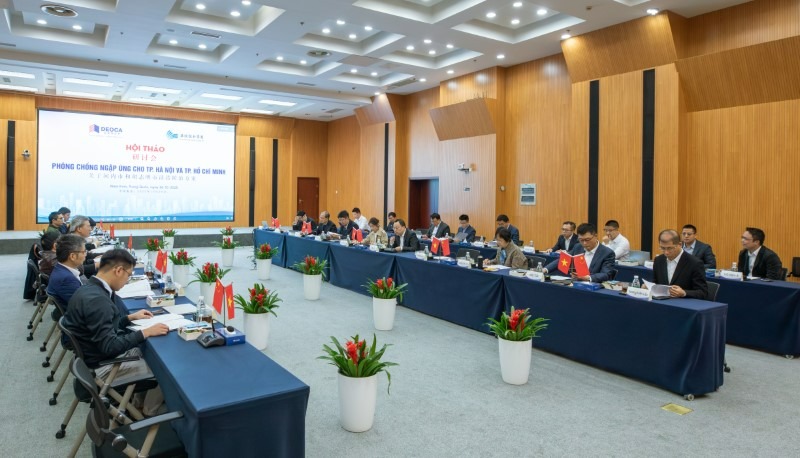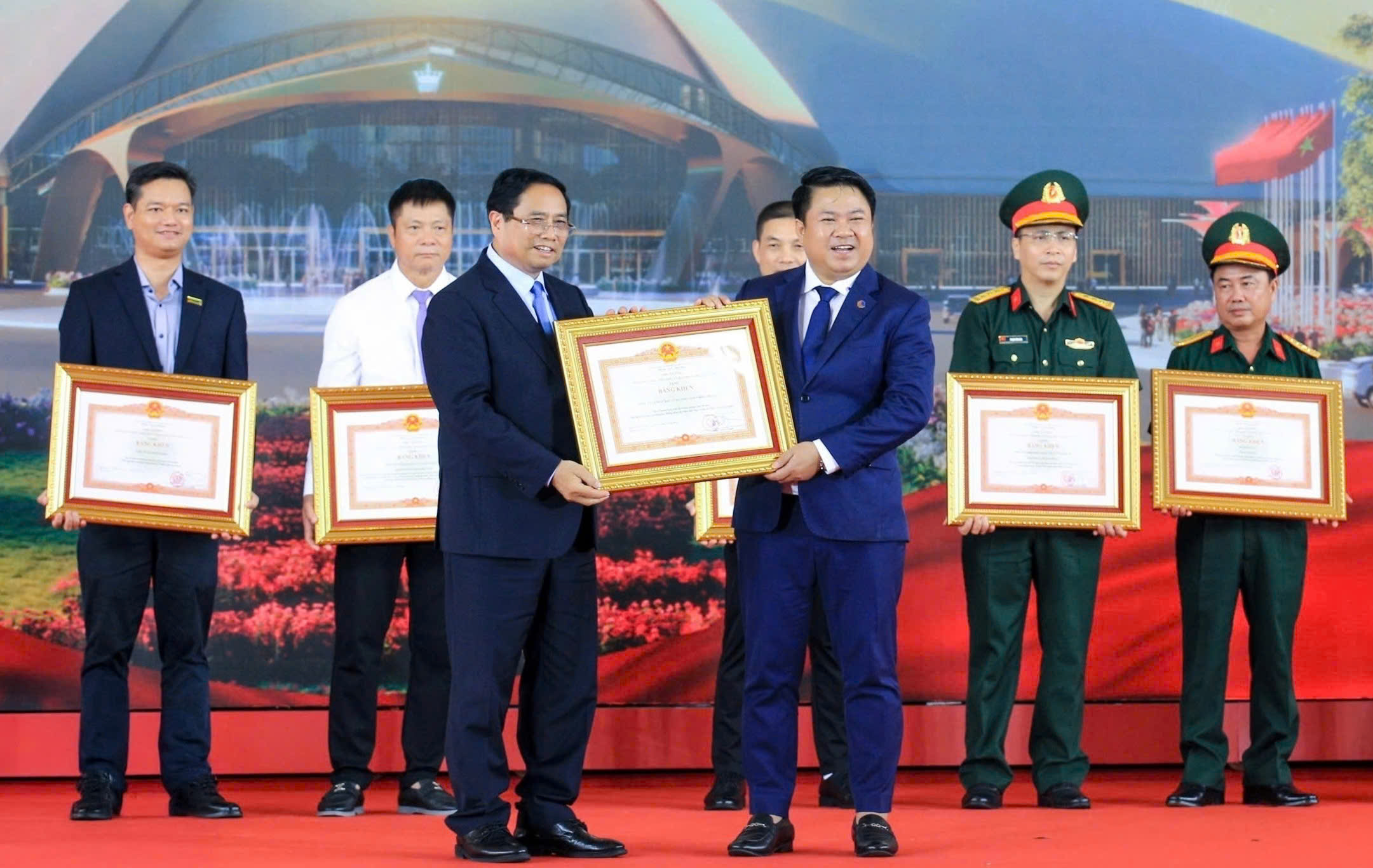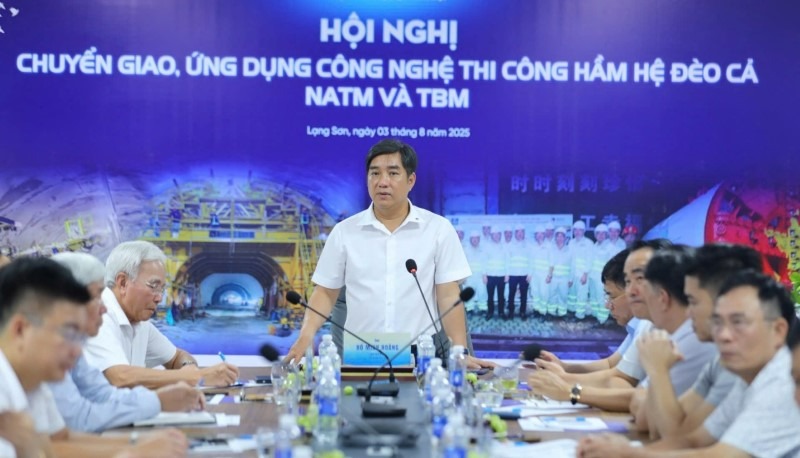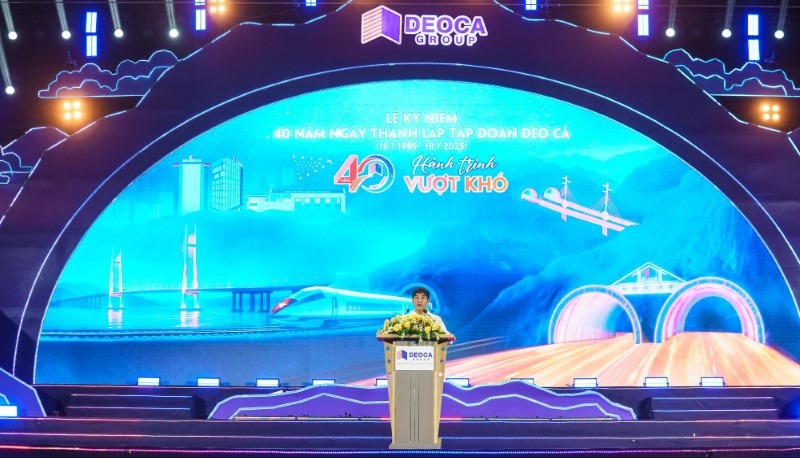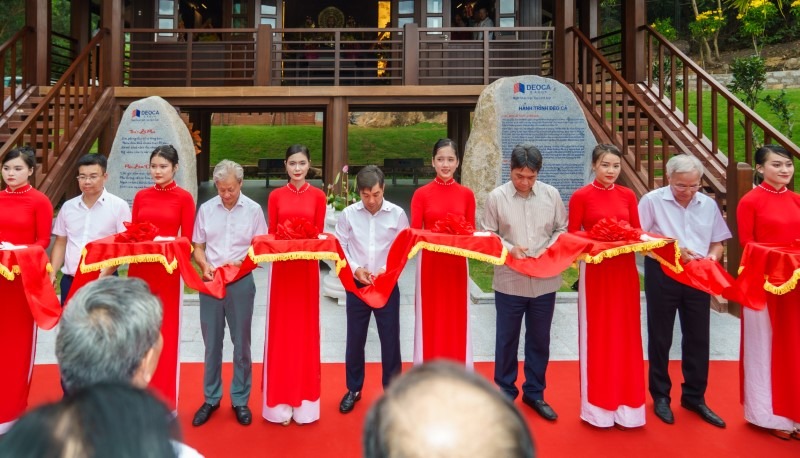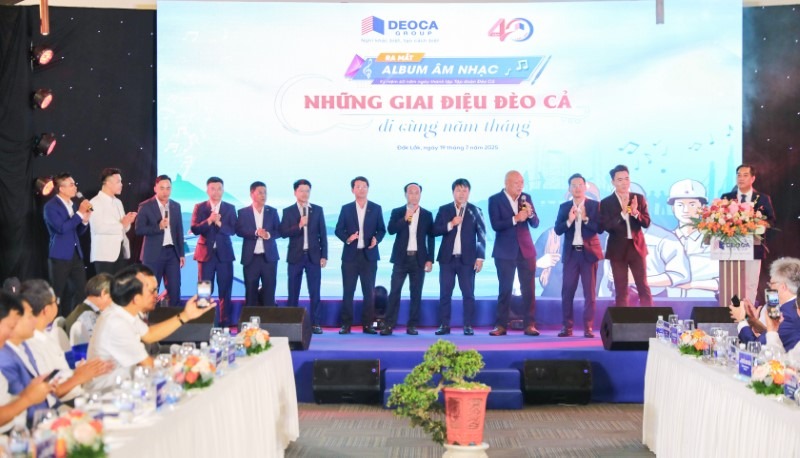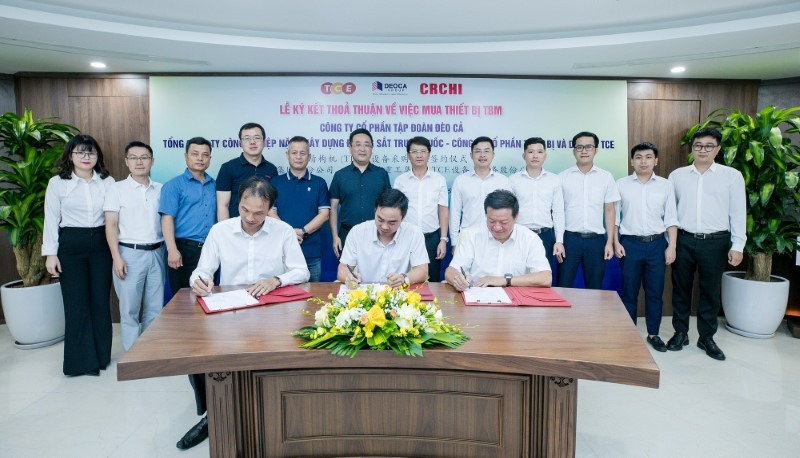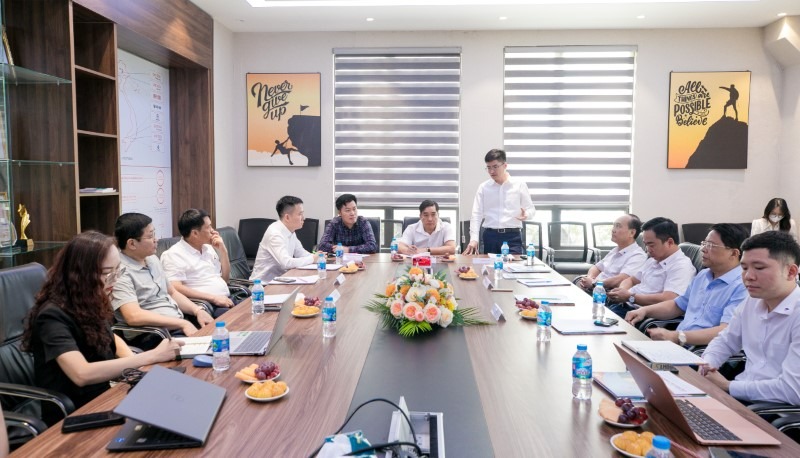On January 7, 2021, Mr. Le Duc Tho - Secretary of the Ben Tre Provincial Party Committee and Mr. Tran Ngoc Tam - Chairman of the People's Committee of Ben Tre province chaired a working session with Deo Ca Group and other departments, branches and localities of the province to hear the report on the coastal road project through Ben Tre province.

Secretary of the Provincial Party Committee and Chairman of the People's Committee of Ben Tre province chaired the meeting
The coastal road in Ben Tre province was approved under the road network plan for the period 2021-2030, with a vision to 2050 in Decision No.1454/QD-TTg dated September 1st , 2021. The project has a length of about 53km passing through the territory of Ben Tre province, with the first point connecting with Tien Giang province and the end point contiguous with Tra Vinh province.
Regarding the investment plan, it is divided into 3 component projects according to the method of public investment combined with the method of public - private partnership. In phase 1, the route has 2 lanes with a total estimated investment of 13,127 billion VND. Phase 2 is expected to upgrade and expand the scale to 4 lanes and the total investment is 15,419 billion VND.
The consulting unit proposed that Ben Tre province continue to work and come to an agreement with the two provinces of Tien Giang and Tra Vinh on connection points, the size of the coastal route in accordance with the content of Decision 1454/QD-TTg; At the same time, synchronously deploying projects across three provinces to ensure connectivity and promote investment efficiency.
After listening to the consulting unit's report, Mr. Tran Ngoc Tam - Chairman of the Provincial People's Committee agreed with the plan of implementing one-time site clearance. For the direction of the coastal route, it is necessary to plan the ecosystem around the route, calculate and plan specifically with the meaning of the dynamic coastal route. The Chairman of Ben Tre province assigned the Department of Planning and Investment and the Department of Transport to act as the focal point to coordinate with Deo Ca Group in planning.
During the meeting, Ben Tre province proposed Deo Ca Group to participate in planning along the coastal route, and be the focal point to connect investors to participate in the project investment. Mr. Nguyen Van Hai - General Director of Deo Ca Group agreed with the proposal of the province and said that Deo Ca Group would invite real estate, tourism, urban and logistics investors to participate in planning as well as mobilizing resources of these investors to build Ben Tre coastal road.

Mr. Nguyen Van Hai - General Director of Deo Ca Group spoke at the meeting
Concluding the meeting, Mr. Le Duc Tho - Secretary of the Ben Tre Provincial Party Committee affirmed that this is an important route, a driving force for local economic, cultural and social development and is a backbone issue in the province's Eastward development goal. Therefore, it is requested that relevant units urgently implement the schedule; in which, relevant departments and branches according to their respective functions and tasks closely coordinate in the implementation and planning of functional areas to create ecosystems around the dynamic coastal route.
“We highly welcome and appreciate Deo Ca Group's positivity and commitment to their best efforts. Hopefully, the business will be a strategic investor, long-term companion with the province, the investor selection process will be in accordance with the law. It is recommended that Deo Ca Group pay attention, research, invest, mobilize, and introduce more to other investors," said Mr. Le Duc Tho.
The coastal road in Ben Tre is not only meaningful for inter-regional connectivity, but also plays a very important role for the province in coastal economic development, port system development and sea transportation, linking with the seaports of the region. Thereby, helping provinces in the region to best exploit the potential for marine economic development; attracting investment in the development of marine economic zones, high-tech agriculture and aquaculture, ensuring sustainable development goals and adapting to the risks of climate change.
BY TT


